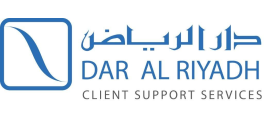From Team Member to Team Leader

Would you ask the best violinist in the orchestra to take over conducting duties without any prior experience or preparation? Probably not. And if you did, you wouldn't have very high expectations for the orchestra's performance.
Yet this is exactly what most organizations do. They promote high-performing salespeople into management roles without preparing them to be confident and competent in the critical areas of coaching, motivating, and developing their team members.
It is not that companies don't recognize the value of the manager's role. When a group of sales executives were asked what was most important to improving sales performance, 88 percent answered, "Making sales managers more effective," a finding consistent with a Sales Executive Council survey. At the same time, over 50 percent indicated that their organizations were not preparing sales managers to lead effectively. Given the sales manager's potential impact on performance, these companies are literally leaving money on the table in the form of
- Smaller ROI for sales training,
- Weak sales productivity, and
- Higher turnover costs.
This is especially critical for pharmaceutical sales managers who more and more must manage their team members virtually.
The Five Questions
Despite all the differences in sales force deployment, products, industries, competitive environment, and customers, sales teams share some core needs. When those needs are fully addressed, salespeople demonstrate higher levels of motivation and commitment, and greater effectiveness in working with their customers. Ultimately, well-managed teams will deliver more sales at higher margins than those who are poorly managed or simply left to their own devices.
To achieve top performance from his or her team, a manager needs the skills and tools to provide clear answers to five simple but profoundly important questions:
1. Where are we going?
2. What is expected of us?
3. How are we doing?
4. What's in it for us?
5. Where do we go for help?
Taken together, these five questions offer a road-map for effective management and a guide to the key skills needed by a high-performing sales manager.
1. Where Are We Going?
It's a given that salespeople have targeted objectives, in the form of their own assigned quotas and awareness of the overall revenue goals for the team. Unfortunately, they are often left in the dark about how they fit into a larger picture, both in terms of the organization's goals and the direction and expectations for the entire sales force. If the sales force is not connected to the overall business direction, they feel out of the loop, and are less able to carry out their role in achieving the broader business goals.
By communicating the company's vision, strategy, challenges, and how the sales team fits into the big picture, managers provide their teams with a sense of belonging to a larger whole and ensure their salespeople are able to make a meaningful contribution to the success of the entire enterprise.
2. What Is Expected Of Us?
It is easy to assume that once salespeople know what to do (i.e., "make your numbers" ) and are properly compensated, the rest will take care of itself. But to fully succeed, the organization needs the kind of performance that leads to strong customer relationships and steady expansion of their business.
To achieve this level of performance, salespeople need to know not only what they are aiming for—the number they are expected to reach—but how they are expected to reach it. How should they be interacting with their customers? How do they access and use sales support resources to follow up on customer needs, questions, or issues? What is the quality of the experience customers should be having with the salesperson and the company? How can they make it happen?
Managers should be able to articulate and communicate both quantitative results and qualitative expectations reflecting longer-term outcomes of the overall sales effort. To do so, they must be able to articulate expectations for the team and for each individual, and know how to communicate those expectations clearly and effectively.
3. How Are We Doing?
Almost every sales leader acknowledges the high value and core importance of coaching and feedback for salespeople. And almost everyone recognizes that these essential activities can easily get pushed to the back burner as managers juggle conflicting priorities. While lack of coaching is often attributed to a lack of time, many managers also lack the necessary confidence and skills to provide effective, timely, and useful feedback.
To build a high-performing team, sales managers must be able to reinforce behaviors that lead to success, develop the skills of less-experienced salespeople, and strengthen areas of weakness. Does the team, or an individual, need to do a better job of discovering healthcare providers' real issues and requirements? Is a new salesperson having problems interacting with longstanding customers and high-prescribing physicians, or finding it difficult to create real value for them? Is there an issue of call reluctance that needs to be addressed?
Unfortunately, many managers are uncomfortable giving what they regard as "negative" feedback, so avoid giving feedback altogether. Some provide the occasional general encouragement or praise that is not targeted to a specific situation or detailed enough to reinforce specific behavior.
To support, reinforce, and stretch performance, managers need to be confident and capable of having effective two-way conversations about what is going well and where there are opportunities for improvement. They also need to make specific suggestions for developing and strengthening needed skills and capabilities.
4. What's In It For Us?
Even if they don't have any other help or support, most salespeople are provided with incentives in the form of bonuses, commissions, and other special awards for outstanding performance. These kinds of rewards certainly provide one kind of answer to the question of, "What's in it for me/us?" Whether it's a trip to Hawaii, a financial reward for a big surge in market share, or a plaque on the wall, providing some kind of tangible benefit is usually seen as both necessary and sufficient to motivate high performance.
There are, however, intangible rewards that can have an even greater impact on motivation, and provide the sense of personal fulfillment that keeps salespeople energized and committed. The most important thing a manager can do in this regard is to provide meaningful recognition that is personal, specific, and timely.
Since what individuals find meaningful varies greatly from person to person, managers can be most effective when they understand sources of individual motivation and customize recognition and rewards accordingly.
Managers who can do this see the results when their salespeople are inspired to deliver the "above and beyond" effort that raises performance from "good" to "great."
5. Where Do We Go For Help?
Most companies provide resources for the sales force, including sales tools, internal sales support, marketing materials, and the like. Unfortunately, organizational barriers often get in the way when salespeople try to round up needed implementation resources, get help in responding to a customer's service request, or find technical support to answer a critical question from a customer.
The sales manager can play a key role in helping his or her people deal with other parts of the organization, ensuring that sales team members are able to access the help they need.
Successful managers are able to communicate clearly about how well the organization is supporting the sales function, and can work with other functional leaders to orchestrate the kinds of resources needed by their sales team.
An equally important resource is again something only the sales manager can provide: time and direct support in the form of coaching, mentoring, and assistance in solving problems with customers.
Salespeople who know the manager "has their back" will feel more confident, loyal, and comfortable in their role. They are more willing to take risks, take responsibility, and act on behalf of their customers when they know they can count on help from the organization and from their manager.
These five questions may not cover every possible aspect of what effective managers must know how to do, but they provide a framework and direction for enhancing sales management effectiveness.
A manager who consistently sets clear expectations, provides effective feedback and meaningful recognition, and ensures salespeople have the tools and support they need to succeed will be rewarded with the benefits of a competent, committed team that delivers superior sales results.
(Source: “ From Team Member to Team Leader ” by Celeste Mosby , Vice President of Life Sciences , Wilson Learning & Michael Leimbach, PhD, Vice President of Global Research & Design, Wilson Learning Worldwide –www.WilsonLearning.com │Pharmaceutical Executive – Sep. 1, 2011)
مقالات من Mohammed Abdul Jawad
عرض المدونة
FREE ONLINE COURSE · Click here for REGISTRATION · Aim of the Course · Contract Management is a ...

FREE WEBINAR - AVAILABLE ON DEMAND · Title: Floor Level Contamination in Cleanrooms and Controlled E ...

Learn more about the latest Smart Pharma topics in this eBook. · In this eBook, you will gain insigh ...
قد تكون مهتمًا بهذه الوظائف
-

Area Manager
تم العثور عليها في: Talent SA A C2 - منذ أسبوع
dar al riyadh Al Qatif, المملكة العربية السعوديةHold a bachelor's degree in businessadministration, or a related field. · Previous experiencesupervising operational operations in the specifiedarea. · Deep knowledge of the local market and economictrends in the region. · Ability to develop and implementstrategies to increase re ...
-
Fire protection specialist
تم العثور عليها في: DrJobEN SA A2 - منذ أسبوع
NWC Taif, المملكة العربية السعوديةDegree in occupational safety and health, electrical engineering, or a related field. · In-depth knowledge of fire protection regulations and standards, such as NFPA and local regulations. · A comprehensive understanding of fire alarm systems, fire extinguishers, water sprinkler ...
-
أخصائي موارد بشرية
تم العثور عليها في: Talent SA A C2 - منذ يومين
Serajj Digital Marketing Riyadh, المملكة العربية السعوديةإنشاء وتنفيذ وتقييم جميع سياسات وإجراءاتوهياكل إدارة الموارد البشرية.إدارة برامج التأمين الصحيوالحياة.تصميم وتنفيذ خطط التدريب والتطوير الفعالة.إجراء مراجعاتأداء الموظفين الفصلية والسنوية.التأكد من الاحتفاظ بجميع سجلاتالموظفين وتحديثها بمعلومات التوظيف الجديدة أو التغييرات في حال ...


التعليقات